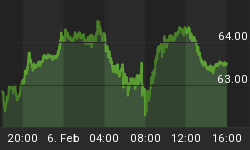
Western central banks have got themselves horribly wrong-footed as a result of not adjusting their anti-gold policies to allow for the realities of Asian gold demand. Though their dealings are shrouded in secrecy, there is compelling evidence that much - if not most - of Western central bank gold has been quietly sold over the last three decades.
More recently all members of the Shanghai Cooperation Organisation, a common security and trading bloc led by Russia and China and incorporating the bulk of Asia's land mass, have been accumulating gold. Between current SCO and future members (India, Iran, Afghanistan, Mongolia, Belarus and Sri Lanka), with their citizens numbering over 3 billion people, they have together cornered the global market for physical supply, without even taking account of demand from the rest of South East Asia's gold-hungry population.
The result is that gold markets are now failing to clear. The outcome is a choice: the West will either have to stop intervening and allow gold to find a level where physical and derivative markets interact properly with each other, or capital markets in the West will face a growing crisis likely to spill over into other markets. While these outcomes were always going to be a choice to be made at some time in the future, the disconnection between physical gold and derivatives has become so great that it is now an immediate concern.
At the government level it is a geopolitical clash of the titans. Russia and China are almost certainly aware of the lack of gold in Western central bank vaults: they are fully capable of thorough due-diligence in this respect. They have so far been careful not to disrupt capital markets because it has not been in their interests to do so; however, the current hiatus in gold markets is almost certain to modify their view.
Fundamental to all this is their attitude to Western currencies: the yen is now collapsing, the euro area is in deep trouble and the US economy is at very best stagnating. Until now, payment for Russian energy and Chinese goods in foreign currencies has been welcomed, because it has allowed the Russian and Chinese elites and middle classes to accumulate wealth. This balance of interests can only be maintained for so long as Russian and Chinese governments and their citizens can hedge foreign currency risks through an offsetting accumulation of foreign-owned gold.
This is no longer the case, because to all intents and purposes western capital markets are cleaned out of physical supplies, and the ability of the Western central banks to supress gold prices appears to be ending. And with the West's financial system no longer able to deliver their most prized commodity, hitherto passive attitudes in Asia to Western currencies are likely to be reassessed.
The gold question has become central to east-west trade. The sensible approach for Western central banks is to defuse the problems arising by taking positive steps to ensure that gold markets operate properly. This is conceptually difficult, because the most likely result, a higher gold price, would risk undermining confidence in the major currencies and most probably damage the bullion banks in London.
Despite these difficulties, realities have to be faced.















